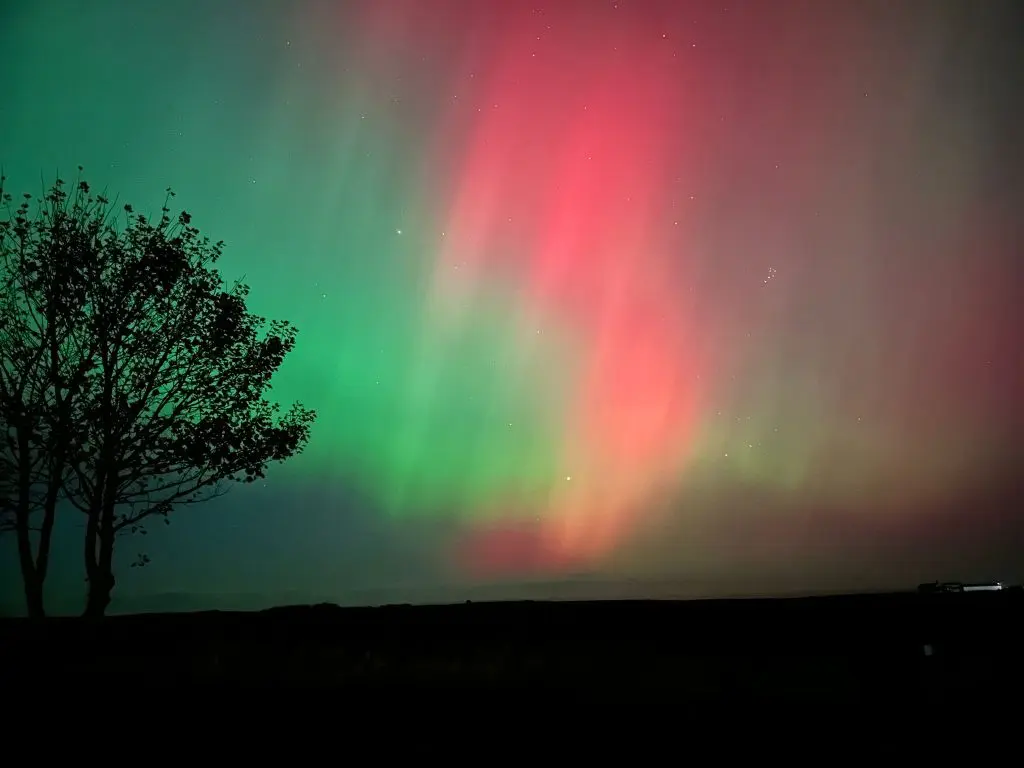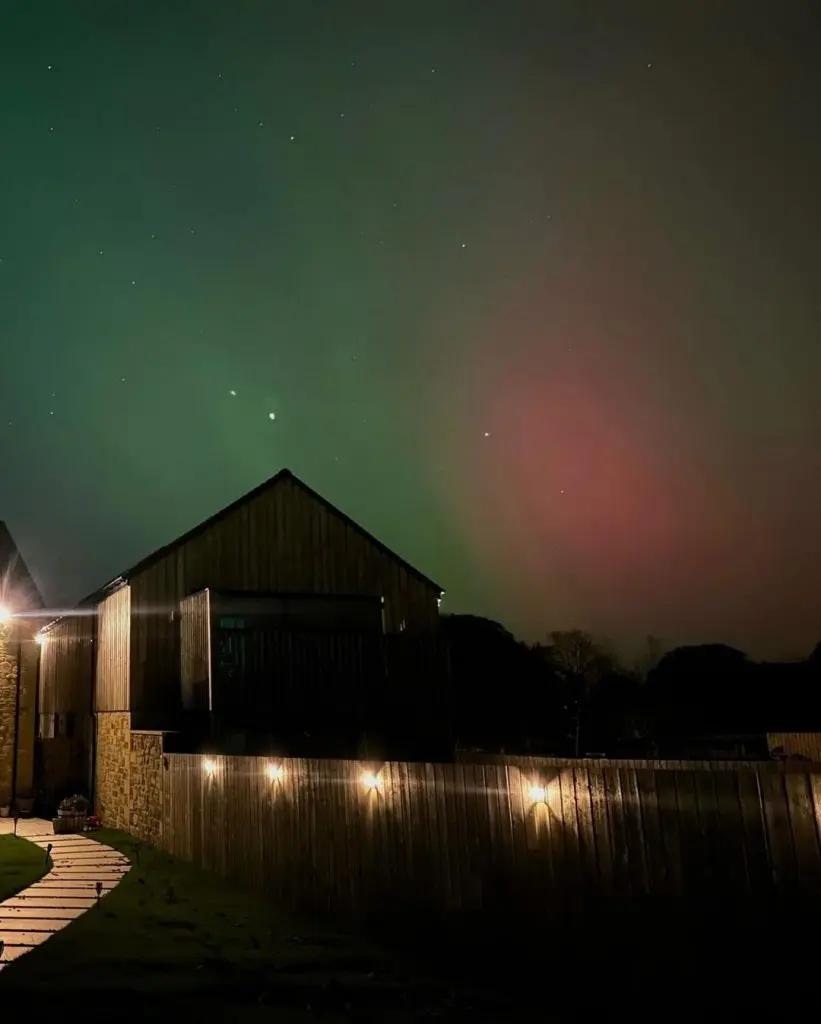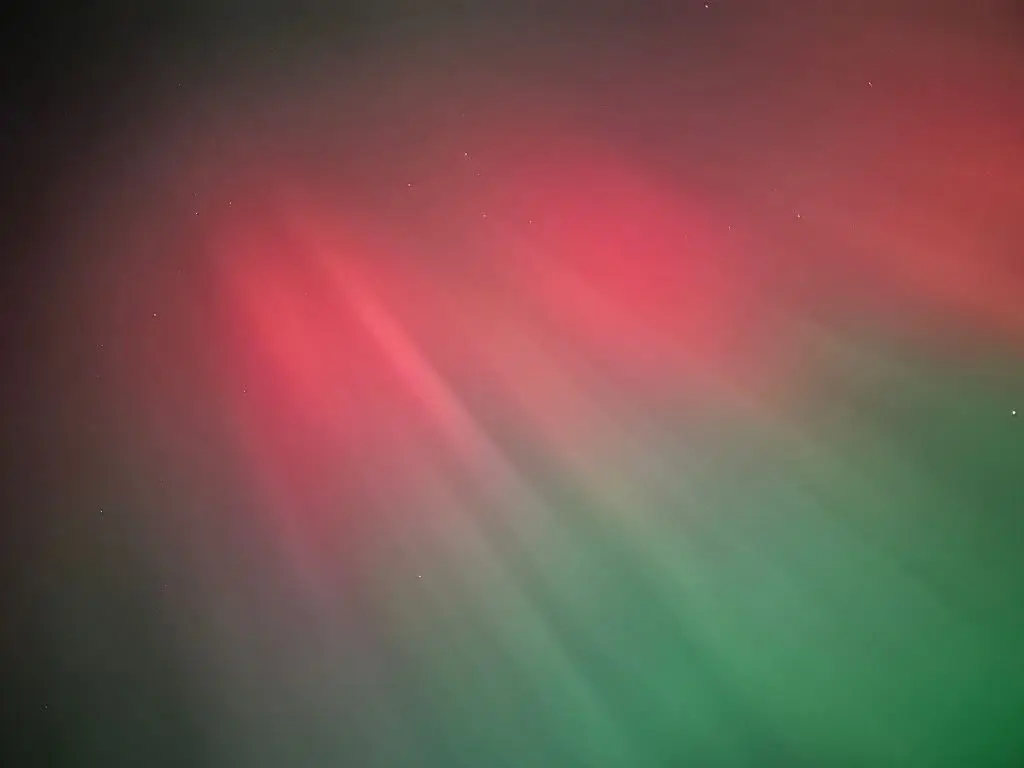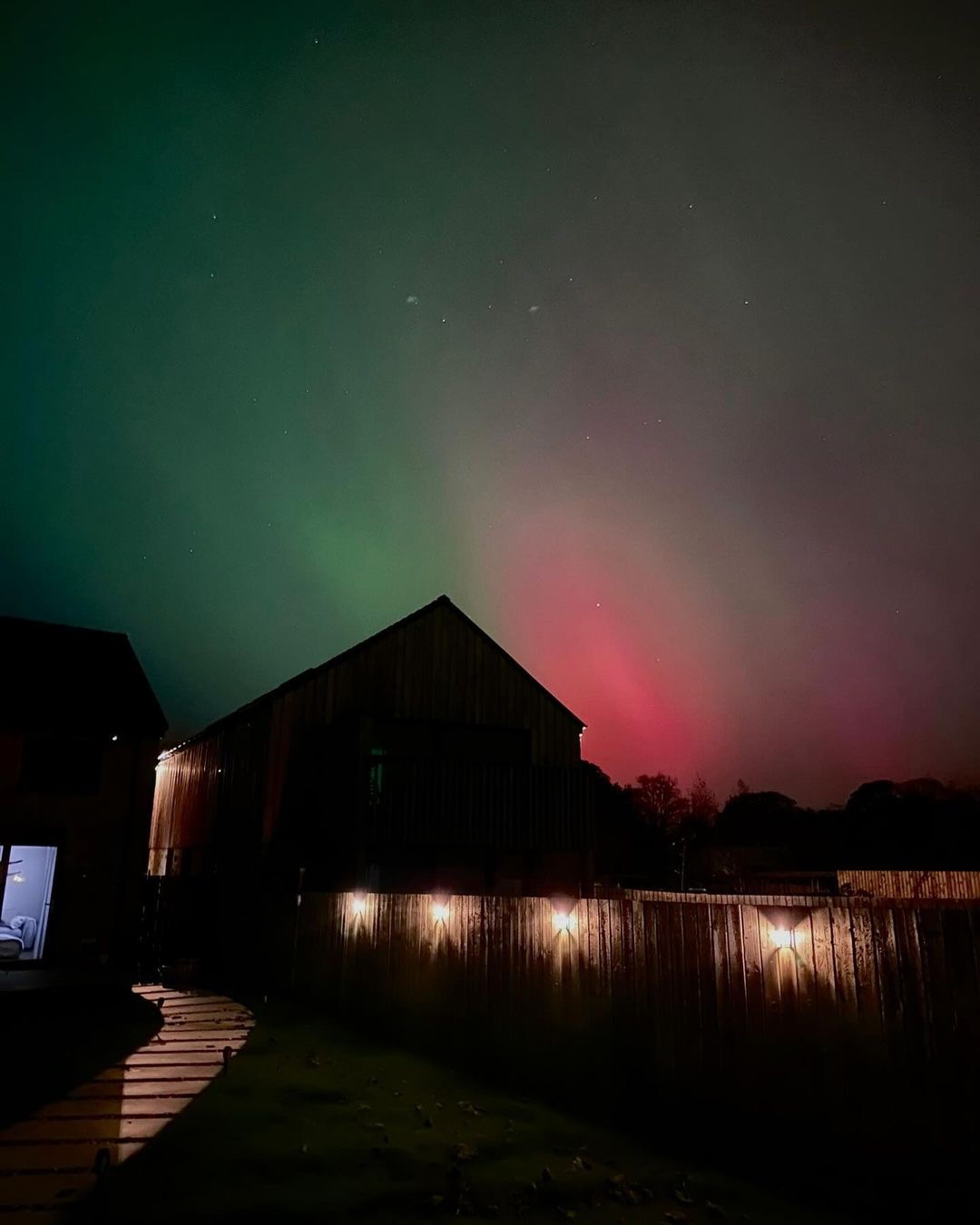Can You See the Northern Lights in Northumberland?
Northumberland, with its rugged landscapes and historical charm, is renowned for its ancient castles, unspoiled coastline, and expansive skies. But did you know that this northern county is also one of the best places in the UK to catch a glimpse of the Northern Lights, also known as the Aurora Borealis?
Yes, that’s right! You don’t have to travel all the way to Iceland or Norway to witness this dazzling display. Northumberland, with its dark skies and northern location, offers a real chance for aurora enthusiasts to experience this natural wonder. In this blog post, we’ll explore why Northumberland is a fantastic spot to see the Aurora Borealis, the best times and places to view it, and tips to improve your chances of catching the Northern Lights.

Why Northumberland?
The Aurora Borealis is typically associated with the far north, but Northumberland’s location makes it one of the best places in England to see this incredible phenomenon. Thanks to the county’s relatively low levels of light pollution and its proximity to Scotland, Northumberland has the perfect conditions to spot the Northern Lights on clear nights, especially during periods of heightened solar activity.
One of Northumberland’s most unique assets is the Northumberland International Dark Sky Park, the largest area of protected dark skies in Europe. Here, far away from the glare of city lights, the stars are brighter, and the chance of seeing the aurora increases significantly. With the right conditions, Northumberland offers one of the most southernly opportunities in the UK to see the Aurora Borealis.

The Northern Lights above The Dunes
The Northern Lights are most likely to be seen in Northumberland during the autumn and spring equinoxes, which occur from late September to early October and from March to April. These periods are when solar activity tends to peak, and geomagnetic storms that cause the aurora are more frequent.
In terms of months, October to March is prime time for aurora hunting, especially because the nights are longer and darker. However, even then, catching the Aurora Borealis requires a bit of luck, patience, and careful planning, as it is notoriously unpredictable.
Where to See the Northern Lights in Northumberland
If you’re hoping to witness the Aurora Borealis in Northumberland, it’s essential to find locations far from light pollution and with open views to the north. Here are some of the top spots:
1. Kielder Observatory
Located in the heart of the Northumberland International Dark Sky Park, Kielder Observatory offers an unrivalled opportunity to experience the aurora. The observatory regularly hosts events where you can learn more about the Northern Lights and the night sky, making it one of the best places for a potential sighting.
2. Warkworth Beach
Warkworth, a picturesque village known for its medieval castle, also boasts a stunning beach that’s ideal for aurora hunting. With its wide-open skies and minimal light interference, Warkworth Beach can offer excellent views of the Aurora Borealis on a clear night. The serene setting, with the silhouette of Warkworth Castle in the distance, adds a magical touch to the experience.
3. Holy Island (Lindisfarne)
Another popular spot, Holy Island offers vast, uninterrupted skies and a dramatic coastal backdrop. This sacred island, steeped in history, is a favourite for those looking to combine the mystery of the island with the celestial beauty of the Northern Lights.
4. Bamburgh Castle Beach
The stunning Bamburgh Castle Beach is a prime location for stargazing and watching for the Aurora Borealis. The combination of the castle’s silhouette and the shimmering lights of the aurora reflecting on the sea can create an unforgettable sight.
5. Simonside Hills
For a more elevated view, the Simonside Hills near Rothbury provide a perfect vantage point for aurora spotting. The higher altitude can help you avoid low cloud cover, offering clearer views of the northern skies.

Maximising Your Chances of Seeing the Aurora
Seeing the Northern Lights requires a bit of planning and patience, but there are some steps you can take to increase your chances:
• Check Aurora Forecasts: Websites like AuroraWatch UK offer real-time updates on auroral activity across the country. Keep an eye on the Kp index (ideally 4 or above), which indicates the strength of the aurora and its likelihood of being visible.
• Monitor the Weather: Clear skies are essential, so keep an eye on local weather forecasts and choose nights when there’s minimal cloud cover.
• Be Prepared for the Late Hours: The best time to see the Aurora Borealis is typically between midnight and 2 am, though the lights can appear at any time during the dark hours. Be ready for long nights, and bring warm clothing to stay comfortable.
• Find Dark Locations: Avoid towns and villages with artificial light. Head to remote areas or beaches like Warkworth, where the skies are free from light pollution.
• Use The AuroraWatch UK Service: AuroraWatch UK is a free service offering alerts of when the aurora might be visible from the UK. It is run by scientists in the Space and Planetary Physics group at Lancaster University’s Department of Physics.
Conclusion
Although the Aurora Borealis can be elusive, Northumberland offers some of the best conditions in England for experiencing this celestial light show. With its vast Dark Sky Park, remote beaches like Warkworth, and the iconic backdrops of Bamburgh Castle and Holy Island, the county provides incredible settings for a potential aurora sighting.
If you’re planning a visit to Northumberland during the winter months, keep your eyes peeled and your camera ready – you might just get lucky and witness one of nature’s most awe-inspiring spectacles, right here in the northeast of England.

